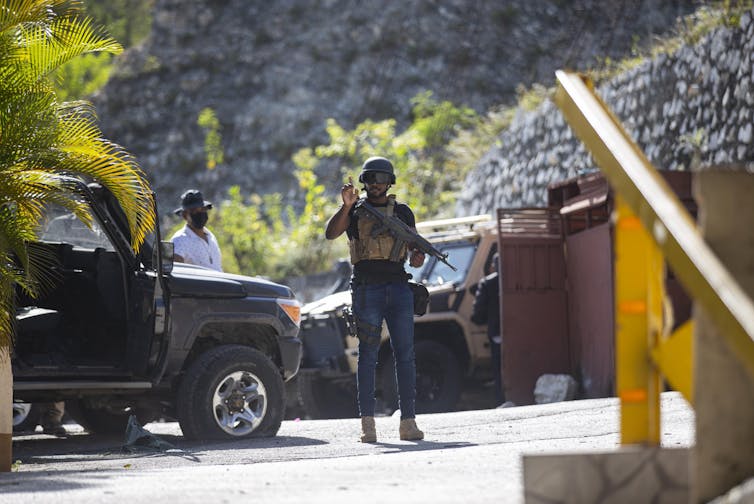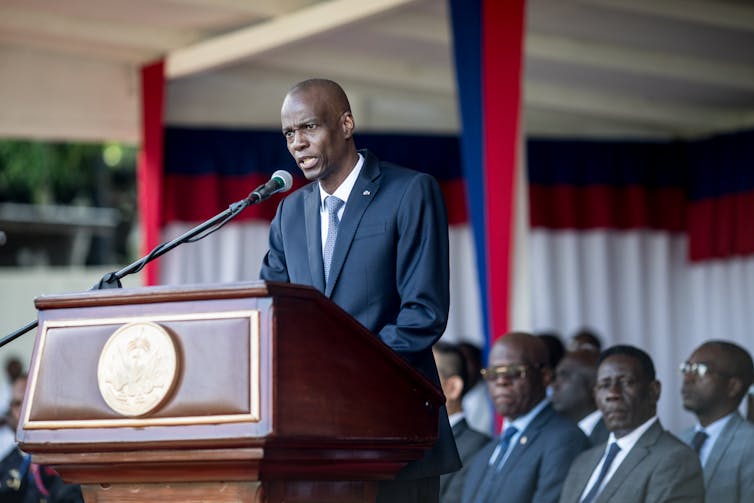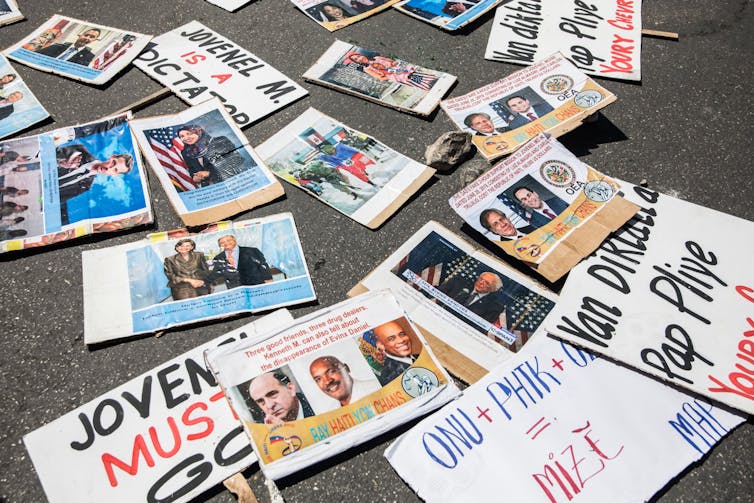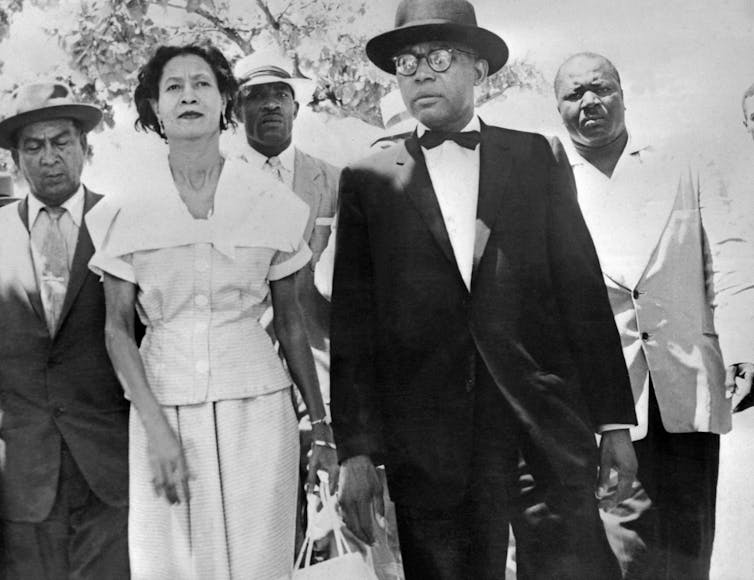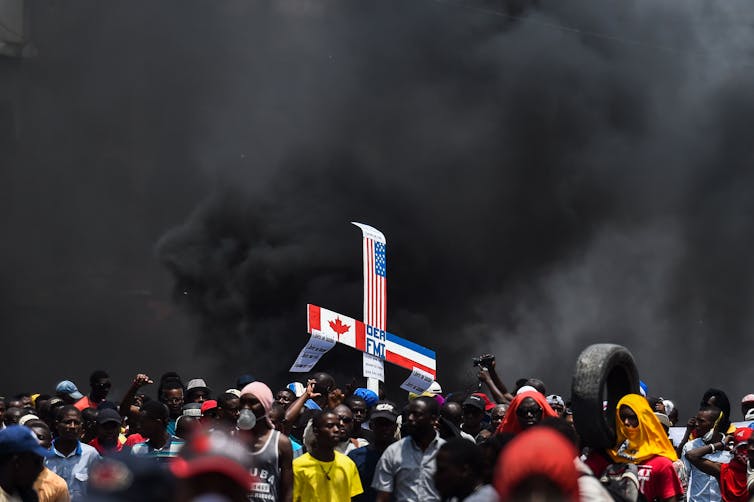Praying For Our World
 As I’msitting in my little home office, it can be a challenge to understand that the world is much bigger than where I live in Kennesaw, Georgia. Or even the country that I’m proud to call home America, the same country that my father Moses Mwaura migrated to. Yet God calls for us to not only recognize that we’re part of a world representing over seven billion people, but at the same time to love the world. In fact, I would even venture to say that Isaiah 37:16 makes it clear that God made and sees the entire world, which is unlike me. God doesn’t see just one part of the world which is why as Christ Followers we should be praying for our world daily.
As I’msitting in my little home office, it can be a challenge to understand that the world is much bigger than where I live in Kennesaw, Georgia. Or even the country that I’m proud to call home America, the same country that my father Moses Mwaura migrated to. Yet God calls for us to not only recognize that we’re part of a world representing over seven billion people, but at the same time to love the world. In fact, I would even venture to say that Isaiah 37:16 makes it clear that God made and sees the entire world, which is unlike me. God doesn’t see just one part of the world which is why as Christ Followers we should be praying for our world daily.
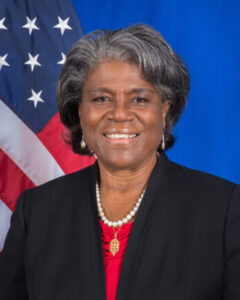 Recently on a rare Thursday Evening when many people were done working for the day, I had the privilege of spending a few minutes with United States Ambassador to the United Nations, Linda Thomas Greenfield. During my amazing time with her I learned so much about our world and the reasons that we should see ourselves not only as citizens of America but worldwide citizens. We have been placed here by a God who made and oversees the world. He desires for us to do our part, which in part is praying for the world around us.
Recently on a rare Thursday Evening when many people were done working for the day, I had the privilege of spending a few minutes with United States Ambassador to the United Nations, Linda Thomas Greenfield. During my amazing time with her I learned so much about our world and the reasons that we should see ourselves not only as citizens of America but worldwide citizens. We have been placed here by a God who made and oversees the world. He desires for us to do our part, which in part is praying for the world around us.
During my time with Ambassador Greenfield, she stressed that although she loves the world that the one part of the world that she is concerned about is Haiti. As a man who has lived in Florida, I understand her sentiments. Haiti is one of the poorest countries in the world and the rate of famine that is plaguing that part of the world is alarming. Although the Haitian people are a resourceful and steadfast people they have been through a lot. “Every two to three years, a national disaster seems to hit Haiti which makes it hard for them to bounce back,” according to Ambassador Greenfield. I can still remember that two years ago their President was assassinated while he slept, and it sent the country into turmoil. As citizens of the world, if we’re to make a difference we should listen to the prompting of the spirit. We should find our part of the world that God may want us to get involved with, pray for it, and even go if we can. If we are to do our part in loving the world we must get out of our personal boxes and get involved.

“We prevented famine in Africa by providing $500 million dollars to confront famine.” In hearing Ambassador Greenfield say this, it brought tears to my eyes. I think at times in our world we can get consumed in thinking that our tax dollars aren’t at work. But they are in cases like these. Luke 4:23 is clear that to much is given much is required. Although we have our problems in America, we have been given a lot. Which is why we should be missional as believers. The Great Commission is clear that we have been called to go into all the world which has never been easier than it is today with modern technology. In the world that we live in today, with just a click of a button, we can have conversations with people that our ancestors would have never dreamed of having. Just by having a conversation with someone in another part of the world we could be making the connection of a lifetime and maybe even bringing peace. I believe that great connections always bring peace. “The United Nations has prevented World Wars and is the only institution that we have worldwide.” This may explain why Ambassador Greenfield loves her job and seemed to be upbeat even after most of us have stopped working for the day. “I’m on a mission”, which for ambassador Greenfield began growing up in a small southern town in Louisiana. During our conversation she was on her way to the airport heading home from a trip to New Orleans. “I loved being back in my home state and the hospitality that they show me…I hope I’m making them proud.”
 As citizens of the world my prayer is that when people see us as American Citizens and followers of Jesus, that we are making them proud. We have been given a mandate by God to not only go into all the world, but also tackle issues that the world may be ignoring like climate change. The Ambassador is clear that climate change issues are not only affecting the us globally but also right here in America. To truly see the needs that are around us, we must people that love and recognize the needs around us. The United Nations is in New York City and is known as “The People’s House.” Ambassador Greenfield says, “It’s the peoples house, so anybody can come”. I will be taking her up on that offer because I believe that we are not only called to love our world, but we are also called to participate and engage with the world as world citizens. God doesn’t just love America, but He loves the entire world and there is so much work to be done. It is going to take all of us to pull off the task that He has called for us to do: bringing heaven to earth so that all may experience the kingdom of God.
As citizens of the world my prayer is that when people see us as American Citizens and followers of Jesus, that we are making them proud. We have been given a mandate by God to not only go into all the world, but also tackle issues that the world may be ignoring like climate change. The Ambassador is clear that climate change issues are not only affecting the us globally but also right here in America. To truly see the needs that are around us, we must people that love and recognize the needs around us. The United Nations is in New York City and is known as “The People’s House.” Ambassador Greenfield says, “It’s the peoples house, so anybody can come”. I will be taking her up on that offer because I believe that we are not only called to love our world, but we are also called to participate and engage with the world as world citizens. God doesn’t just love America, but He loves the entire world and there is so much work to be done. It is going to take all of us to pull off the task that He has called for us to do: bringing heaven to earth so that all may experience the kingdom of God.

